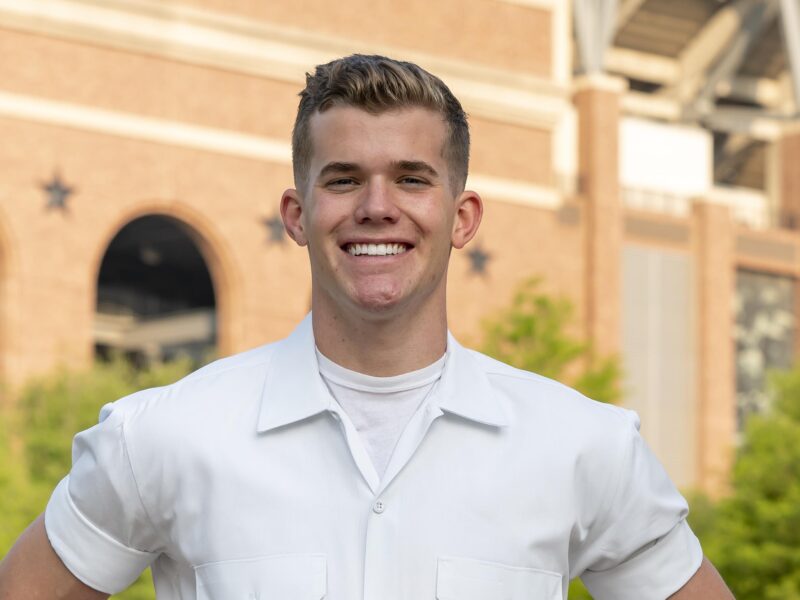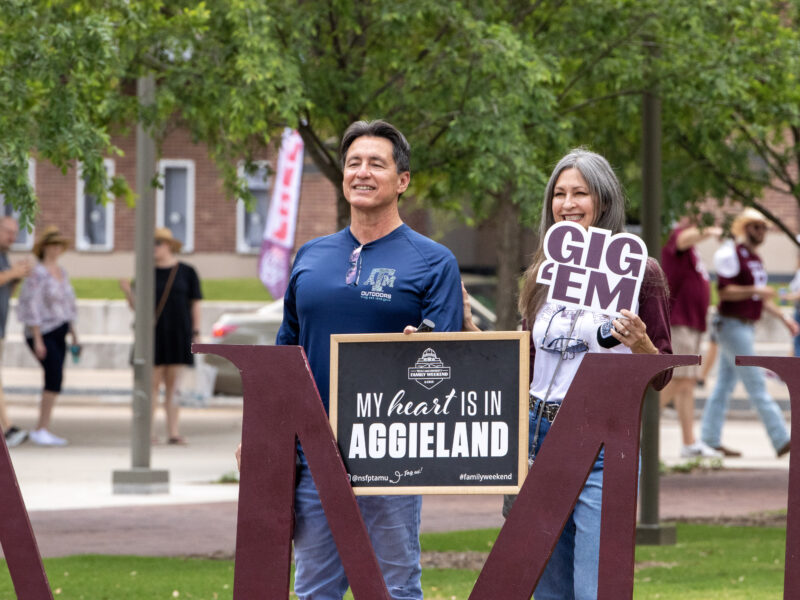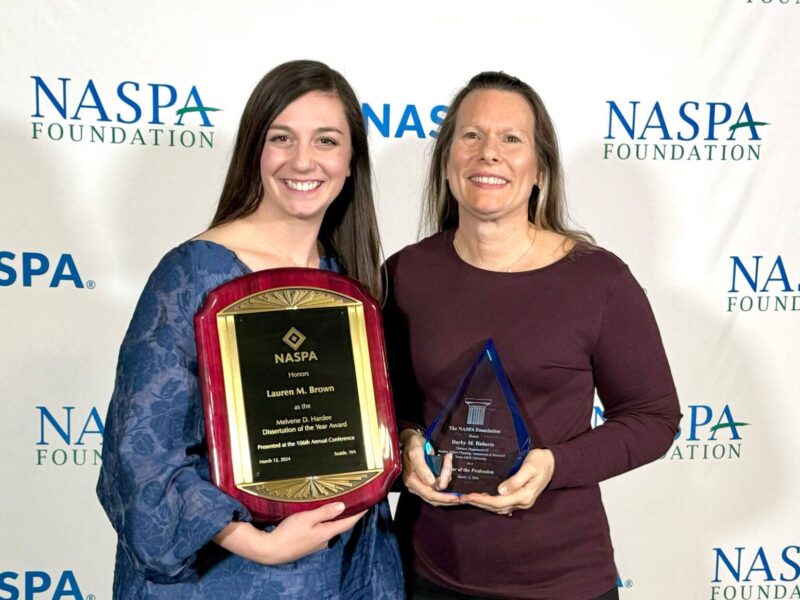MSC Wiley Lecture Series Celebrates 40 Years
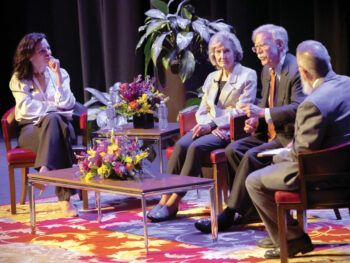
Texas A&M University’s MSC Wiley Lecture Series, a student-led organization, welcomed three former U.S. government officials to Rudder Theatre last week as part of its long-running lecture series which has previously welcomed presidents, prime ministers, secretaries of state and other highly notable speakers.
This year’s lineup featured former U.S. Ambassador to NATO Kay Bailey Hutchison, former U.S. National Security Advisor John Bolton and former Department of Homeland Security Assistant Secretary Juliette Kayyem for a panel discussion titled “Rethinking American Intervention.” The event was moderated by Texas A&M Professor of Political Science Dr. Dwight Roblyer, who introduced the audience to the topic of America’s history of foreign military interventions over the last half century in the context of current conflicts.
“Throughout American history, we have given various reasons for intervening in the affairs of other sovereign nations,” Roblyer said. “Sometimes we point to a threat to our own national security, to the security needs of a regime friendly to us, to our economic national interest, or to ongoing humanitarian alarm.”
It is American interests alone that determine whether the U.S. intervenes in other countries, said Bolton, asserting the U.S. has always been an outward-looking nation, from the days of Westward expansion to the two World Wars and beyond. “Today [intervention] has a negative context in American politics because people have taken to viewing it as something abnormal,” he said. “…throughout our history, America has been an outward-looking country…The real issue is first to define what American interests are, then figure out how to defend them, how to protect them, how to advance them. And that may involve military intervention or a thousand other different methods.”
Kayyem cautioned that although U.S. intervention may be necessary at times, it can also cause harm. “We have to be better at looking at the risks to our own vulnerabilities by some of these interventions…by going in somewhere, are we increasing the terror threat?” she said.
Referencing the current Israel-Hamas war, Kayyem said, “I certainly would not want another vote in Gaza right now because Hamas would win again. We have to be honest with ourselves that these interventions also radicalize people who might not have otherwise been.”
Hutchinson stated that until she went to NATO, she never understood that America is “the essential leader in the world.”
“When we are intervening, it is in our interest to do so,” she continued, noting that in the current Russia-Ukraine war, America is intervening. She said it is in the U.S. interest for Ukraine to win, lest Putin next attack a NATO country and America is obligated to deploy troops. “I want to make sure that we give [Ukraine] the arms and the capability to win and stop Putin in his tracks,” Hutchinson said.
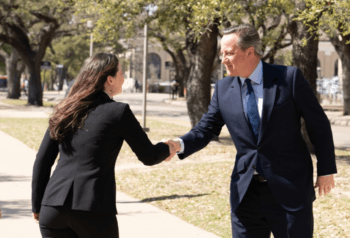
Four Decades Of MSC Wiley
Last week’s discussion was typical of what MSC Wiley has provided to the Texas A&M community since its founding in 1982 when a group of students decided it was important to bring well-known public figures to campus to discuss global issues.
The program originally was called the MSC Endowed Lecture Series, but in 1984 renamed to MSC Wiley Lecture Series after it received an endowment from brothers James E. Wiley, Sr., and A.P. Wiley, both Class of ’46. Over the years, the Wiley family has continued its generous support of this program and other Texas A&M endeavors.
Guests for the main program have included such notable figures as U.S. Presidents Gerald Ford and Jimmy Carter; former British Prime Ministers Margaret Thatcher and David Cameron; Mexican Presidents Vicente Fox and Felipe Calderón; and Secretaries of State Henry Kissinger, Alexander Haig and Madeleine Albright.
Current MSC Wiley Chair Jackson Grant ’25, a political science major from Austin, says the group’s role on campus today is more relevant than ever. “With recent events around the world, it has never been more important to understand the United States’ place in the world,” he said. “How we tackle international issues going forward is going to require a lot of diverse thinking and decision making and allowing our community to hear the decision makers discuss this process firsthand is something I believe is beneficial to everyone.”
In addition to the main program, MSC Wiley hosts smaller events throughout the year called Symposia. The group notes these events are more tailored to students and feature such noteworthy guests as U.S. congress members, renowned professors and foreign dignitaries.
Learn how you can contribute to the MSC Wiley mission.
